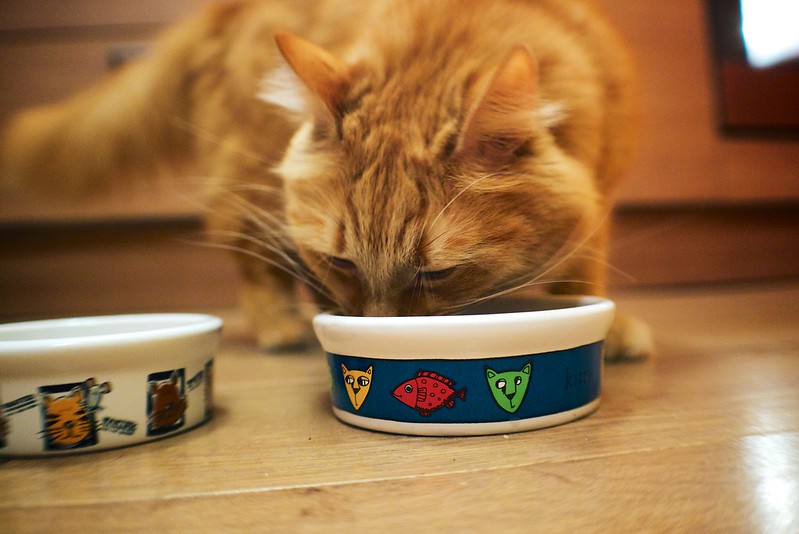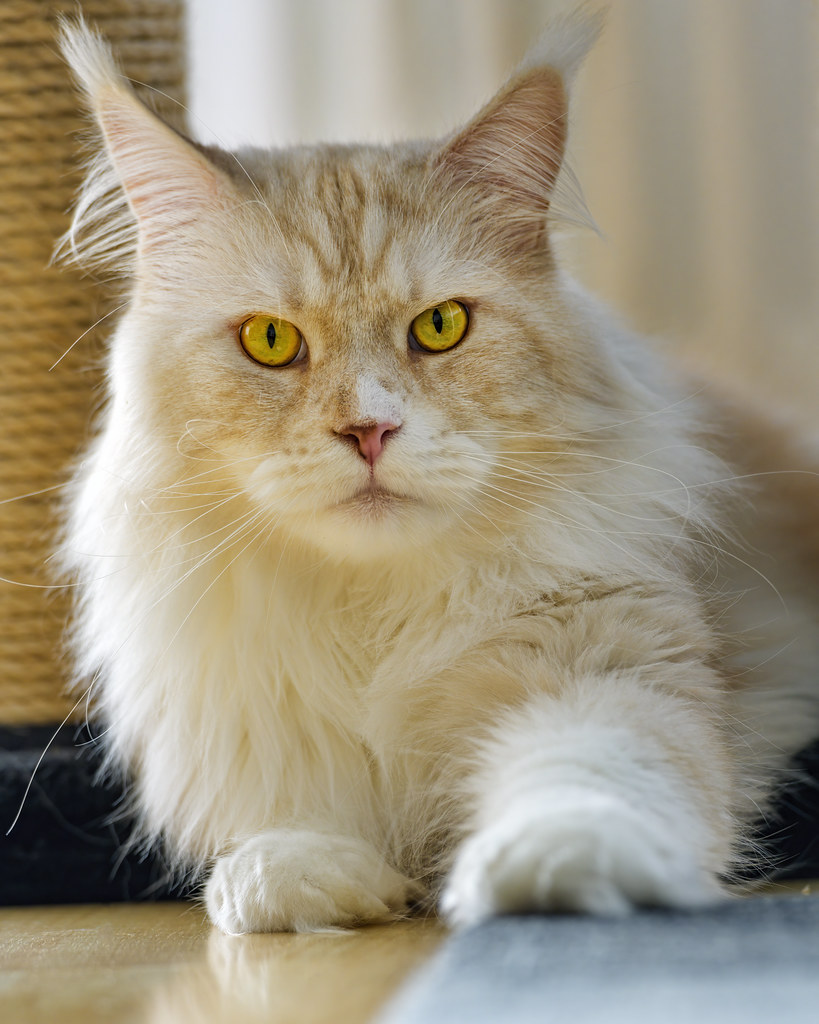Top 5 Reasons Why Free Feeding Kibble Is Harming Your Cat:
As a result of rarely needing to drink water, cats body signals that communicate the urge to drink to their brain are so delayed that they are already at the point of dehydration when they finally feel the need to drink. Not only does dry kibble lack the moisture that cats greatly need everyday to stay hydrated, but every time they graze feed, they are using up essential moisture from their system just to be able to digest the food, therefore keeping them in a cycle of systematic dehydration. Dehydration is dangerous because it slows down every function in the body, and when that is allowed to occur on a daily basis for years it will have major health consequences such as kidney disease or even kidney failure. Chronic dehydration is one of the leading causes of kidney disease in cats as ‘almost half of cats aged 6-9 years old are already showing signs of kidney deterioration on wellness blood testing, and some reach 40% function loss as early as age 3’. Important: If your cat is on a kibble only diet, then provide different water stations well away from its food. Two or three water sources ensure that your cat can choose where to drink. Offer wide flat bowls, or better still, a fountain. Feeding your cat wet or raw food will give them the moisture they need to thrive, thus reducing the risk of developing health issues later in life. 2. Mental Stress Hunt. Catch. Kill. Eat. Groom. Sleep - as I mentioned above, this is the order of life for all cats, including Little Miss Fluffy asleep on your lap. But, if there is kibble available all day then she has no need to hunt. "But that's a good thing", I hear you say. Wrong! She needs to hunt to satisfy the deep instinct within her. It doesn't have to be live prey. A toy is just as good. After the 'prey' has been caught and killed, Fluffy then wants to eat it and this is when you provide her food. If she is denied the hunt, catch, kill, eat routine, then you will have an extremely unhappy and stressed cat. 3. Obesity and Diabetes Most dry pet foods contain large amounts of highly processed carbohydrates in the form of refined starches that have been stripped of almost all of their nutrients and fibre during processing. They contain empty calories and provide zero nutritional benefit to pets. Carbohydrates such as grains, potatoes, and legumes are composed primarily of starches, and are essential for pet food manufacturers to keep costs low as the ‘main function of carbohydrates in the processing of extruded dry diets is to provide structural integrity to the kibble’. For pets and humans alike, as soon as this type of starch hits the digestive system and becomes moist, it's quickly converted into sugar which promotes spikes in blood sugar. For cats who are constantly free feeding on kibble, their blood sugar levels are spiking and crashing all day, triggering pancreatic stress that will eventually lead to obesity and diabetes. Cats are very sensitive to sugar, so processed starches should be completely eliminated from their diets. As the pet food industry is generally unregulated, companies don’t have to disclose what percentage of their food's carbohydrate content is from starch and fibre. Since ‘starches in commercial cat foods are included up to 35%’, it is easy to see why our pets are suffering from so many chronic health issues today. While high carb diets should be avoided, you shouldn’t eliminate carbs from your cat’s diet altogether. Fibre, on the other hand, is a good type of carbohydrate which is part of a healthy diet for pets and humans, as it helps to stabilize blood sugar levels. Unlike starch, fibre cannot be broken down into sugar molecules, and instead it passes through the gut undigested. 4. Increases Stress A high starch diet can cause fluctuations in your cat’s mood and energy levels. The constant spikes and crashes in their blood sugar levels, a result of eating starchy foods all day, will disrupt their sleeping and brain patterns. For instance when blood sugar or insulin crashes, this produces increased levels of a stress hormone called cortisol. As a result your cat can become unusually irritable and stressed. You should look for these sudden mood or behavioural changes in your cat as this is an indication of nutritional issues that need to be addressed. Stress wreaks havoc on cats who are extremely sensitive to stress because it can cause many issues ranging from constipation to affecting their immune system. 5. Lack of Appetite It is especially common for cats who graze on dry kibble to become picky eaters, making it difficult to encourage them to try new foods. If they have access to food all day and are always eating, they never really experience hunger and don’t see food as something valuable. Slowly introducing mealtimes by feeding them 2-3 times a day with small meals in the morning and evening, rather than allowing them to eat all day long, will help to stimulate their appetite. Cats will learn that their food will not always be available and food will become more valuable, increasing their appetite.
Step 3
One they start getting more used to this routine (willingness to eat more at these set times), reduce this to two times a day. Eventually your cat will be meowing and waiting for you at mealtime, especially if you’re running behind that day! If you’re still feeding kibble, I highly recommend that you also consider this a good time to start adding wet or raw food into your cat’s diet. You can start to add a little bit of wet canned food, or add a tiny bit of raw food and see what they do. Try a teaspoon at first as some cats aren’t easy to switch!
0 Comments
Leave a Reply. |
aNNA MARTINOver 40 years of being owned by cats. Archives
November 2023
Categories |


 RSS Feed
RSS Feed